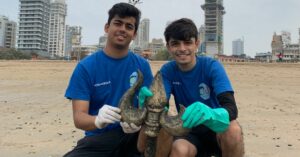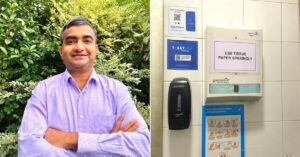How Did Places With No Fixed Water Supply Wash Hands Against COVID-19? Here’s How
“The water quality is very good and affordable at Rs 5 for 20 litres. Even during the COVID-19 lockdown, there was no effect on water availability.”
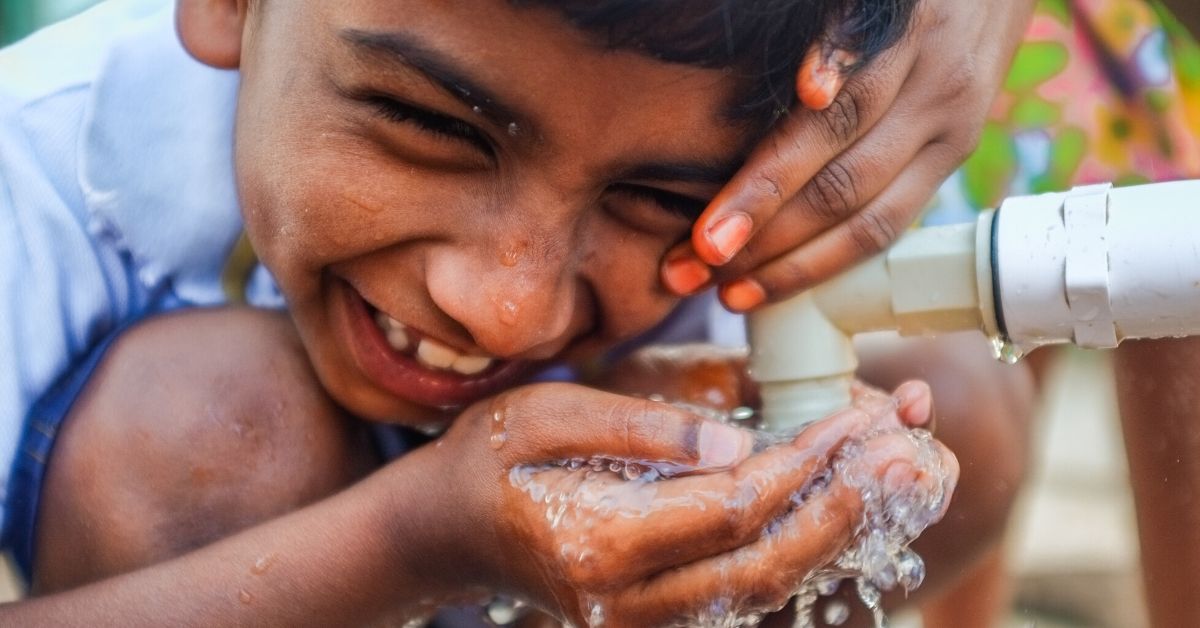
Hot, extended summers are typical in many parts of India. In the hottest parts of the country, one can find interesting and funny expressions for the summer heat — ‘summer, more-summer and most-summer’!
The difficulty to access safe, potable water is no laughing matter, however. It is so severe that it impacts the communities’ health, takes time away from other priorities, such as family time and education, and is a detriment to the overall quality of life.
No one knows this better than Myathari Padma in Pulkal village, in Medak district of Telangana. She was all too familiar with this challenge until a safe kiosk was set up in her village.
This proved to be a blessing during COVID-19, as the station limits outside exposure while providing safe water for drinking, cooking, and personal hygiene such as handwashing.
‘The Better Home’ brought to you by ‘The Better India’
We created ‘The Better Home’ because you shouldn’t have to choose between non-toxic ingredients and effective cleaning. Our cleaners are safe for babies, pets, skin and our oceans.
Explore our range of powerful, earth-friendly cleaners here.
Myathari is vociferous in her appreciation. She says, “The quality is very good and affordable at Rs 5 for 20 Liters . Our drinking water problem has been resolved to a great extent. Even during the COVID-19 lockdown, there was no effect on water availability.”
Twenty states in India are served by these purification plants, which bring affordable and safe water to the doorsteps of villagers. Several organisations under the collective umbrella of the Small Water Enterprise Alliance, [SWEA] are striving to keep water flowing in nearly 90 per cent of the country’s geography, knowing how important this is in the fight against the spread of the novel coronavirus.
P Laxmi, in Fasalwadi, 24 kilometers from Pulkal, also regularly consumes water from the station. Even during “normal” times, quick and easy access to drinking water was a luxury for her family until the station was set up.
“Our village gets the piped water at home but we are used to getting our treated drinking water from the neighbouring village for drinking and cooking. It cost us Rs 15 or Rs 20 per can. We also had to wait for the delivery man whose delivery was unpredictable. So it is good to have a plant for us in our village that gives affordable water at much less price of Rs 5/20 litres.”
Role of technology to enable social distancing and cashless transactions
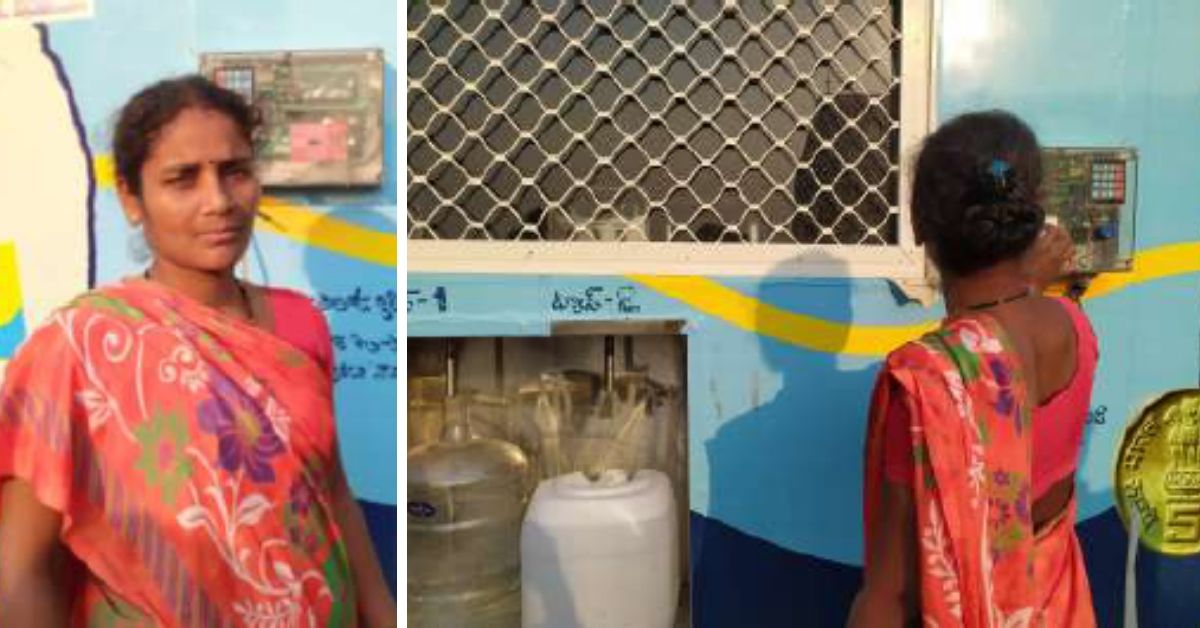
For Safe Water Network, one of the Alliance members, the onset of COVID-19 meant rapid adaptation. How to keep the stations running amidst the lockdown? How to ensure the support services, so that the individual entrepreneurs can keep operations going?
Srinivas, who runs the station in Pulkal village, is proud of his social enterprise. Through social entrepreneurs, Safe Water Network sets up treatment plants equipped with remote monitoring systems for improving public health. The entrepreneur is trained in operations and maintenance, bookkeeping etc and the community buys their daily drinking water through 24×7 automatic ATMs, using their smart RFID cards.
He says, “I’ve been the plant operator since day one,” adding, “The drinking water problem in the village has been addressed. I need back-end logistics support like chemicals for cleaning and new RFID cards, but the team has continued to provide these, even during these tough times. I now earn Rs 6,000-7,000 per month.”
During setup, the Safe Water Network stations are fitted with remote-monitoring systems. About 15 parameters related to the enterprise (such as consumption, volume, and quality) can be monitored remotely with a smartphone.
Following the lockdown, organisations have begun to strengthen their strategies, using technologies such as cashless digital payments, touchless transactions, remote monitoring systems for increased visibility of operations, handwashing stations at ATM sites, and community education on individual and collective safety, as prescribed by the government.
Physical distancing procedures have been implemented at all stations for customers waiting in line. Personal contact between station operators and customers has been eliminated, thanks to these measures.
Focus on awareness-building and behaviour change
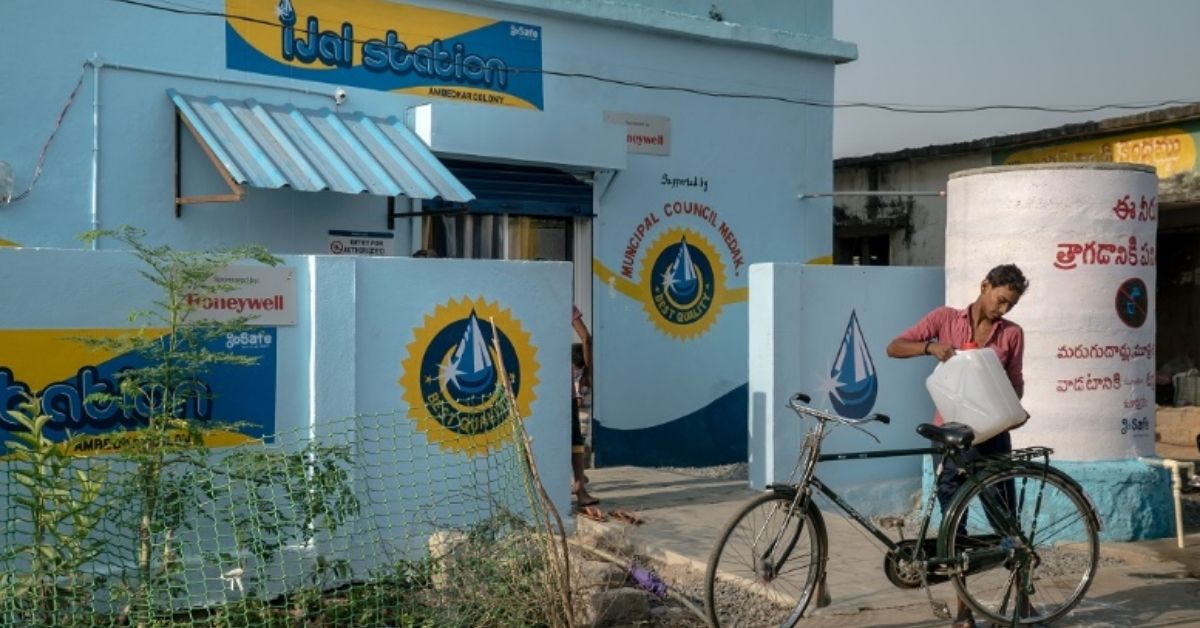
The communities where kiosks are set up are aware of the hazards of contaminated drinking water. For years, they have been witnessing the impact on their lives through water-borne diseases such as fluorosis, arsenicosis, blue baby syndrome, diarrhea, jaundice, and typhoid.
There were other collateral impacts, such as the loss of livelihoods due to sick days, time spent by women on caring for the sick, girls missing school, and the general drudgery of collection.
Research has shown that the women and girls in the community bear the disproportionate brunt when safe water access is lacking. Interestingly, once kiosks begin operations, the “burden” of retrieving water transfers to the men of the household, with nearly 92 per cent of water collection activities taken up by men on their bicycles or two-wheelers.
With the threat of the pandemic, the need for safe water and hygienic practices have compounded. Posters in various languages promoting safety measures such as handwashing, social distancing, and personal protection, have been disseminated by the government. With support from Safe Water Network’s corporate partner, Honeywell, foot pedals for handwashing will be installed at many stations. Currently. communities are using basic handwash with soap and water from bucket.
Transferring the lessons to water-stressed cities
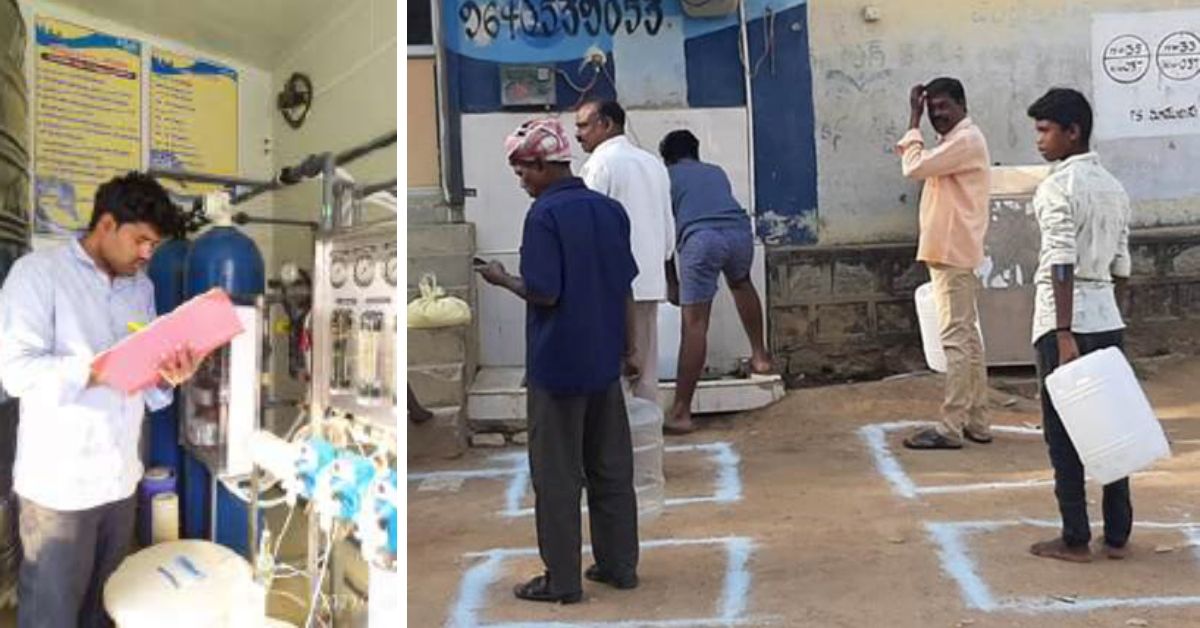
As was witnessed by Chennai and Shimla in recent years, urban India is severely water-stressed. It is a major public health imperative and an economic one as well.
According to Government of India’s ejalshakti portal, 756 Urban Local Bodies have been identified as water-stressed. The SWE Alliance has embarked on replicating its success in other parts of India and applying them in urban India.
Pilots in Hyderabad, Bengaluru, Kolkata, Pune, and others are already showing promise, implementing kiosks near busy metro stations and other arterial junctions. They provide affordable water to the ‘Consumer on the Go’. This prevents the scourge of plastic waste and helps to save money. These kiosks provide safe quality water at the fraction of the cost of bottled water.
Small enterprise implementers have banded together to transform the urban water landscape in cities and are currently present in over 50 cities. “As more people move into the urban areas of the country, there is an urgent need to look at how cities are preparing to meet the safe drinking water needs of their growing populations,” says H Subramaniam of Earth Water Limited.
The Small Water Enterprise Alliance will engage city municipalities, urban planners, civic organisations, youth groups, local corporates, and others to take a more in-depth look at the challenges facing a city, and develop a roadmap to tackle those challenges.
“We have been able to transfer our technical as well as community engagement experience to help the urban context,” said Divya Yachamaneni of Naandi Community Waters.
The goal is to transform the drinking water scenario with pilots in 25 cities, learn from these experiences, and take the approach to dozens of other cities across the country.
In the immediate future, the Alliance is actively raising public awareness and involvement. An extensive outreach will be kicked off once the lockdowns are lifted. While there are too many fragmented approaches, this Alliance is a convergence of knowledge, resources, and ideas, and a collective approach to bargaining with policymakers.
Back in Telangana, in the village of Fasalwadi, Nani Goud makes his routine trip to the kiosk. He says, “Earlier, I had to rely on water can supply from a tempo from Sangareddy town to get my drinking water. It was more than double the cost of the kiosk in my village. I am no longer worried about the delivery delay or cancellation! I worry about my fellow villagers’ health without 24×7 clean water provided by the kiosk.”
The organisation Safe Water Network featured in this story is organising a unique event to bring together youth from across the world to engage in a dialogue on water and sustainability.
This unique virtual youth convening of over 500 young global change leaders is being held on September 3. The event will bring together change drivers and highlight their innovative and solutions-oriented work to help solve some of the most critical challenges the world is facing, including water, financial inclusion, opportunity-creation, sustainability, and climate change. Featured guests include Dr. Rajiv Shah, President of Rockefeller Foundation, Chandrika Tandon, recognised business leader and philanthropist, and Ravi Venkatesan, UNICEF Special Representative for Young People. Also featured are Garvita Gulhati of Bengaluru and Abigail Opoku of Ghana [based in New York], who symbolize the kind of youth leadership needed to enable positive change.
The event aims to bring young people into the conversation and provide a platform for them to learn, share and connect with like-minded individuals. Safe Water Network hopes that this event will strengthen the youth network and serve as a vehicle for future dialogues.
You can register for the event here.
(Written by Poonam Sewak and Venky Raghavendra. Edited by Shruti Singhal)
Poonam Sewak and Venky Raghavendra are with Safe Water Network. They work with communities and like-minded organisations around the country in enabling better access to safe water to underserved populations.
This story made me
-
97
-
121
-
89
-
167
Tell Us More
We bring stories straight from the heart of India, to inspire millions and create a wave of impact. Our positive movement is growing bigger everyday, and we would love for you to join it.
Please contribute whatever you can, every little penny helps our team in bringing you more stories that support dreams and spread hope.






